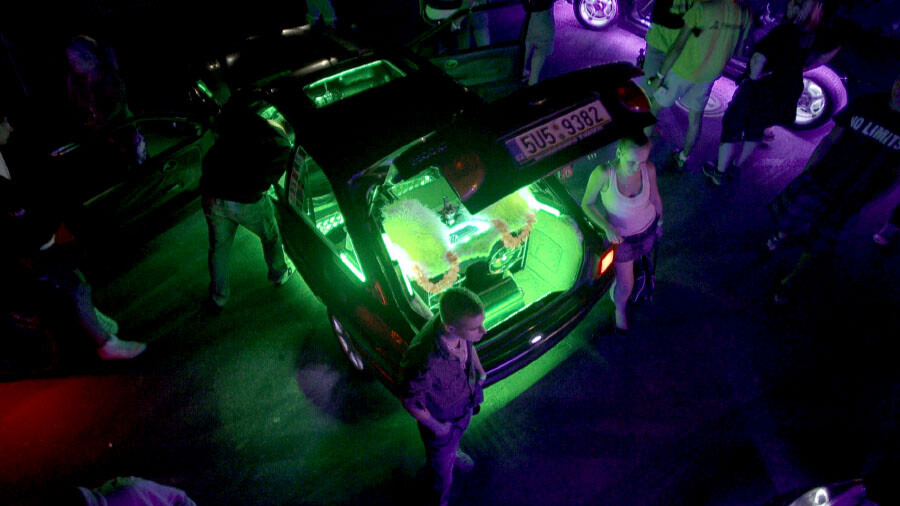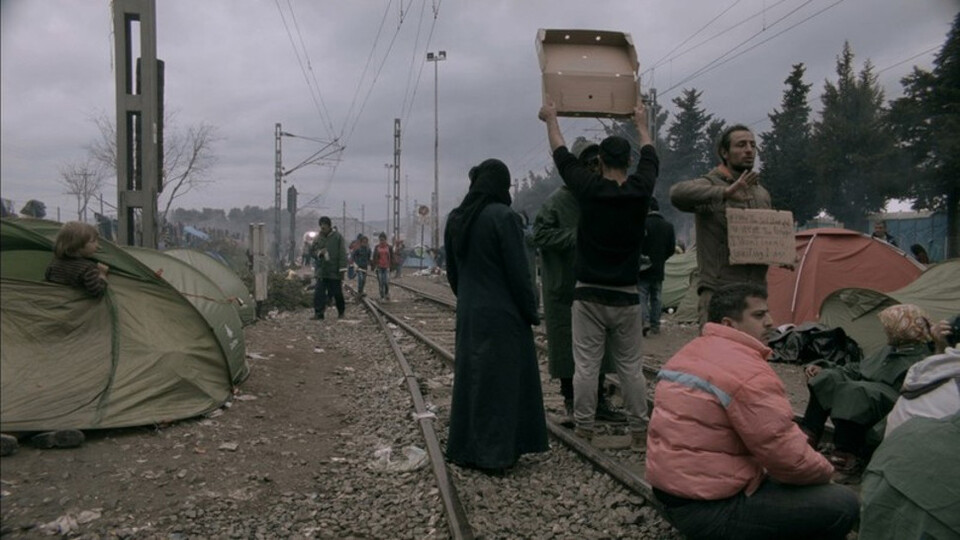Fine-Tuned North Bohemia
We have met in one of Prague’s cafés to speak about tuning; sociologist and chief editor of Biograf journal for qualitative research Barbora Spalová (BS), who lives in the Lusatian Mountains, film journalist Tomáš Stejskal (TS), who writes for A2 magazine, and media consultant Jan Charvát (JCH), author of the entry on tuning in the book Kmeny (Tribes). “It is a surprisingly quiet, even elegiac film,” says Tomáš Stejskal in a debate about the latest documentary by Martin Dušek Into the Clouds We Gaze.
JCH The film is set in North Bohemia, which is not a coincidence. For reasons unknown to me, the tuning subculture is heavily concentrated in this region. The greatest tuning meetings are held there, a part of the local youth really lives for tuning. However, they are primarily followers of the sometimes mocked “home tuning”, substituting meaningful modifications by stickers. As they jokingly say, plush cubes on the rear-view mirror will increase the performance by 10 horsepower.
BS The North Bohemian landscape may play a significant role. There are many abandoned military areas there. At the same time, many people make a living by importing cars from Germany and redoing them. The most important factor, however, consists in mobility; in the possibility to escape from the depressive housing estate. The public transport goes from bad to worse. One just has to have a car there.
TS Many people in North Bohemia work in branches that require manual dexterity. It’s natural that they prefer cars to philately. At the same time, they don’t have much money; their garage style is DIY to a certain degree.
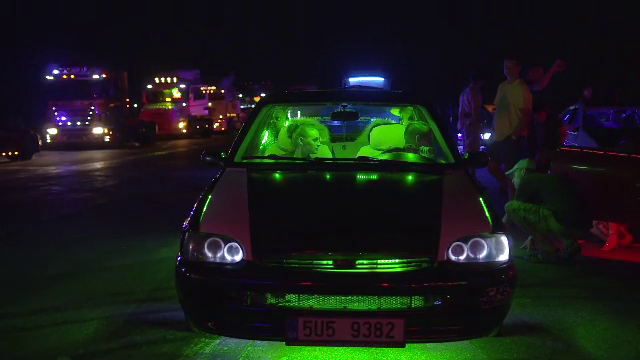 |
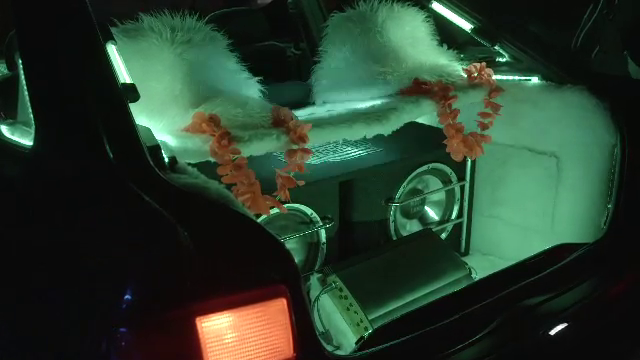 |
Into the Clouds We Gaze
I Am No “Gippo”
JCH I find it quite paradoxical that the film protagonists, in their situation, have chosen a hobby that ranks among the most expensive ones. The main protagonist does not have a penny to his name.
TS Tuning can be seen as a metaphor of a self-destructive mechanism pulling the main protagonist deeper into poverty. The fact that the people followed in the film are poor is really important. They are both poor and angry at those who are in a similar situation or a little worse off.
BS That’s a good observation. In the area, there is the phenomenon of the “ethnicization of a social problem”. The attempt to distinguish oneself from those who, according to the welfare applicants, stand even lower on the social scale, leads to emphasizing that the others are black, yellow, or “inferior” in any other way. When the female protagonist states that she behaves like a “gippo”, it is a bitter self-reflection, which she compensates at least by saying that she, unlike the “gippos”, does not have ten children but only one and so she does not rob the state of a large sum of “undeserved” benefits.
TS The problem of the relationship to the Roma minority is touched upon in the film several times. At the very beginning, the female protagonist takes part in an anti-Roma march. She, who later says that she gets 10.000 CZK on welfare, marches between the banners which say that the Roma don’t work etc.
BS The demonstration scene is what bothered me in the film though. Primarily since I don’t know what kind of demonstration it is and why the protagonist takes part in it. As if the visual rendering of the demonstration explained everything.
JCH The society-wide atmosphere that these scenes refer to casts a shadow upon what the film protagonists do.
TS Most importantly, the scene works as a complement of the one where the two friends discuss their social status. These two scenes prove the elegance of Martin Dušek who manages to include such a society-wide theme in a portrait of a young man with some kind of a hobby.
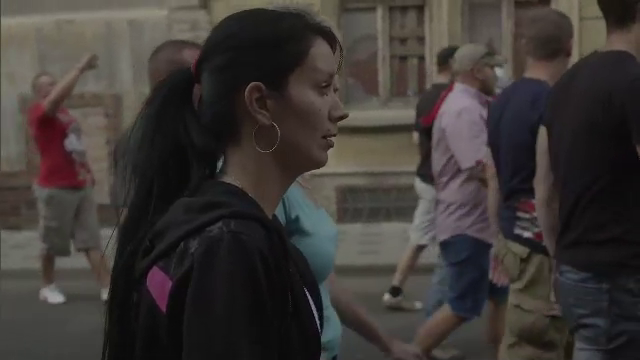 |
 |
Into the Clouds We Gaze
Well-Tuned, Them Lights
BS I may be too sensitive, as I live in North Bohemia and I am concerned about its media image. It is easy to extract a problem to a Northern area where most of the nation never goes to. On the other hand, I would like to appreciate the way the film captures the problem of unemployment. The mediation of employment by agencies, pointed out in the film several times, forms the lives of people in the North in a completely crucial way.
TS Depersonalized relations, be it with the authorities or employment agencies, increase the importance of the fact that some guys at a darkened parking lot praise my nice illumination. The director has succeeded in showing that what looks like stupid fun at first glance is actually of immense internal importance to the protagonists.
BS I was captured by the rendering of the tuning meetings. The film does a good job showing the contrast between the “macho” atmosphere of the tuning meetings and the way their participants cope with common situations. Both partners of the main protagonist wore the pants in the relationship; they both knew what to do. In the end, the local society stands or falls on the practical functioning of women. Even some of the dancers who are stripping off at the tuning meetings are most likely at work, supporting their families.
TS It was in connection with the tuning meetings that I have most appreciated the quiet, observational tone of the film. In case of tuning, I would expect the very opposite; something like The Unholy Cavalry, a short film about motorcyclists by Robin Kvapil, with lots of smoke, roaring and raw “macho” energy. Into the Clouds We Gaze, on the contrary, is a calm film, with even utterly sad moments, such as when the protagonists are sitting in their car, waiting for an evaluation, surrounded by green, cadaveric light.
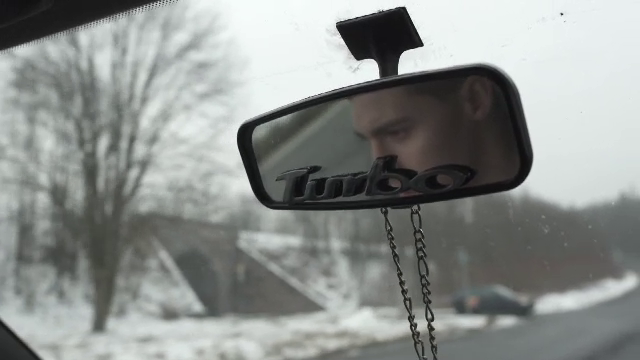 |
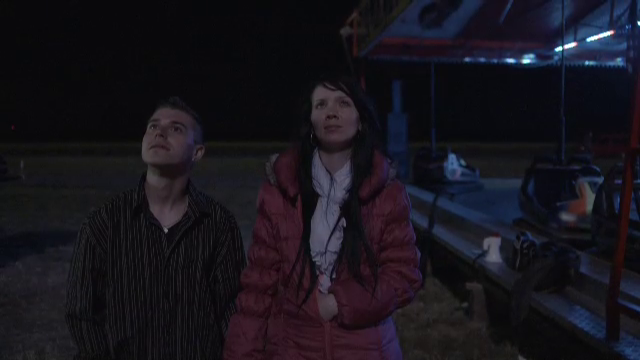 |
Into the Clouds We Gaze
Clouds of Exhaust Fumes
BS At some points the film is like waiting for Godot. The protagonists are standing somewhere, waiting for an evaluation, for a job... They are waiting for an intervention from above, which will hardly ever come. Perhaps that’s how the title Into the Clouds We Gaze can also be interpreted.
JCH I would rather see it as a reference to the vicious cycle of materialism, symbolized by tuning in a certain way. I buy a car; next week I want a stronger one. The film protagonists obviously don’t have money to change their cars; however, the essence of tuning consists in wanting something better all the time. What I have will always go up in smoke, just like the clouds of exhaust fumes.
TS I have interpreted the title in a similar way. It embraces the tension between the clouds we look up to and the clouds of exhaust fumes. There is the ambiguity of something above us, something that transcends us; and something superficial, something material. The title implies that something we might see as a small thing; such as the job of an electric cart driver desired by the film protagonist; is actually something unattainable in the reality lived by the protagonists.
Translated into English by Tereza Chocholová

